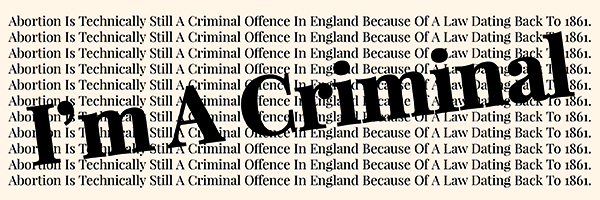Men On How Abortion Changed Their Lives
I listened to what she wanted and made sure I was responding to her, mostly. It takes two to make a pregnancy. I felt responsible.
My life would have been very different if we lived in a country that didn't allow abortion.
I didn't know who to turn to – if I could go back, I'd have talked to my dad, or someone older with more perspective or emotional maturity, for advice.
For me there's no shame talking about abortion, but I can see why there might be for other men. We're not encouraged to talk about our emotions, let alone emotions mixed up with politicised issues such as this.







